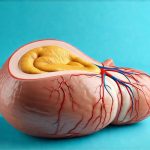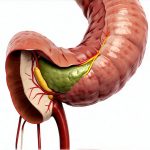Indigestion, often dismissed as a minor discomfort, is surprisingly prevalent and can significantly impact daily life when it lingers. Many associate indigestion with immediate symptoms – that burning sensation in the chest, bloating shortly after eating, or noticeable gas. However, a less recognized aspect of this common ailment is delayed symptom onset. This means the effects of what you ate, or how you ate, might not be felt for hours, even days, making it incredibly difficult to pinpoint the cause and manage the issue effectively. Understanding this delayed presentation is crucial because it often leads to misdiagnosis, prolonged suffering, and a reliance on quick fixes that don’t address the underlying problem. It’s important to remember that indigestion isn’t usually a serious condition in itself, but persistent or severe symptoms should always be investigated by a healthcare professional.
This article will delve into the nuances of recognizing indigestion with delayed symptoms, exploring why this occurs, what potential triggers exist beyond immediate dietary factors, and how you can begin to understand your body’s individual responses to food and lifestyle choices. We’ll focus on distinguishing between typical digestive discomfort and potentially more serious conditions that might mimic indigestion, and offer strategies for tracking and managing these experiences. The goal is to empower you with knowledge to better advocate for your health and seek appropriate support when needed. It’s about moving beyond simply treating the symptom and towards understanding the root cause of prolonged or delayed digestive distress.
Understanding Delayed Indigestion Symptoms
Delayed indigestion symptoms are characterized by discomfort that arises hours after eating, rather than immediately following a meal. This can manifest in several ways, making diagnosis tricky. Unlike acute indigestion which often presents as heartburn, nausea, or bloating right after food intake, the delayed form might initially appear as fatigue, subtle abdominal pain (not necessarily linked to a recent meal), changes in bowel habits, or even seemingly unrelated symptoms like headaches. The disconnect between the trigger (the food or event) and the symptom makes it easy to overlook the connection, leading individuals to attribute their discomfort to other causes entirely. This delay is often due to several factors relating to how our digestive system processes food.
The process of digestion isn’t a rapid one; it involves complex stages from mechanical breakdown in the mouth to chemical digestion in the stomach and small intestine, culminating in absorption and elimination. Problems can arise at any stage, but those occurring lower down the digestive tract – for example, issues with intestinal motility or bacterial imbalances – often take longer to manifest as noticeable symptoms. Food sensitivities are a prime example: someone might consume a food they’re mildly intolerant to without immediate reaction, only to experience bloating, fatigue, or skin rashes several hours later as their body attempts to process the offending substance. Furthermore, stress and emotional states play a significant role; while acute stress can immediately impact digestion, chronic or delayed stress responses can lead to digestive upset that surfaces well after the stressful event has passed. How Emotional Health Interacts with Reflux Symptoms explores this connection in detail.
The complexity of the gut microbiome also contributes to this phenomenon. An imbalance in gut bacteria – dysbiosis – can impair digestion and absorption, leading to symptoms that aren’t immediately apparent. Certain foods can feed undesirable bacterial populations, triggering delayed inflammation and discomfort. This is why identifying triggers for delayed indigestion often requires a more holistic approach than simply eliminating obvious culprits like spicy food or caffeine; it necessitates considering the overall health of your gut ecosystem. It’s crucial to understand that delayed symptoms aren’t necessarily less serious – they just require a different perspective when trying to identify the source. Tracking symptoms across the gut with digital monitoring can provide valuable insights into these patterns.
Common Triggers & Distinguishing Indigestion
Identifying triggers for delayed indigestion can be challenging, as they extend beyond simply ‘what’ you ate to encompass how you ate and your overall lifestyle. While common culprits like fatty foods, acidic fruits, caffeine, alcohol, and spicy meals certainly play a role, the delayed nature of symptoms often points to less obvious factors. Food sensitivities and intolerances are key areas to explore; these aren’t allergies (which trigger immediate immune responses) but rather difficulties digesting specific components in food. Lactose intolerance, gluten sensitivity (even without celiac disease), and histamine intolerance are common examples that can cause delayed digestive issues.
Beyond dietary factors, lifestyle habits significantly impact digestion. Stress is a major contributor – chronic stress disrupts the gut-brain axis, interfering with normal digestive function. Eating too quickly or while distracted can lead to inadequate chewing and incomplete digestion. Lack of physical activity also plays a role; regular exercise promotes healthy intestinal motility. Finally, medication side effects should be considered, as many drugs can disrupt the digestive process. The key difference between indigestion and other conditions lies in its typically non-inflammatory nature. While heartburn is often associated with acid reflux and esophageal inflammation, delayed indigestion usually lacks these specific indicators unless it’s a chronic issue leading to secondary complications. Exploring symptoms with no obvious structural cause can help differentiate between functional and organic digestive issues.
Distinguishing between indigestion and more serious conditions like irritable bowel syndrome (IBS), inflammatory bowel disease (IBD), or even gallbladder issues can be difficult without proper medical evaluation. IBS often presents with abdominal pain and changes in bowel habits, whereas IBD involves inflammation that causes persistent diarrhea, rectal bleeding, and weight loss. Gallbladder problems typically cause sharp, localized pain after eating fatty foods. If your symptoms are severe, persistent, or accompanied by concerning signs like blood in the stool, unintentional weight loss, or fever, it’s vital to consult a healthcare professional immediately. Are Gut Symptoms Worse With Irregular Meals may also contribute to delayed symptoms and should be considered.
Tracking Symptoms & Identifying Patterns
One of the most effective ways to manage delayed indigestion is to meticulously track your symptoms and identify patterns. This isn’t just about noting what you ate but also when, how much, and how you felt before, during, and after eating. A food diary or symptom journal can be invaluable.
- Record everything you eat and drink, including portion sizes and preparation methods.
- Note the time of consumption and any associated circumstances (e.g., stress levels, activity level).
- Document your symptoms – even seemingly minor ones – along with when they appear relative to eating. Be specific: describe the type of discomfort, its location, intensity, and duration.
- Include other relevant factors like sleep quality, exercise routine, and any medications you’re taking.
After a few weeks of consistent tracking, you can begin to identify potential triggers and correlations. Are there certain foods that consistently lead to delayed symptoms? Do stress levels seem to exacerbate your discomfort? Does exercise improve digestion? This information will be incredibly helpful both for self-management and when discussing the issue with your doctor. Don’t underestimate the power of detailed tracking; it transforms subjective experiences into objective data. Do Symptoms Change Over Time with Intolerances? highlights how symptoms can evolve, making accurate tracking even more important.
Dietary Adjustments & Lifestyle Modifications
Once you’ve identified potential triggers, dietary adjustments can significantly alleviate delayed indigestion symptoms. This doesn’t necessarily mean eliminating entire food groups but rather modifying your diet to minimize discomfort. Consider these strategies:
- Smaller, more frequent meals: Overloading the digestive system can exacerbate symptoms.
- Mindful eating: Slow down, chew thoroughly, and focus on enjoying your meal without distractions.
- Hydration: Drink plenty of water throughout the day to aid digestion.
- Fiber intake: Moderate fiber is generally beneficial but excessive amounts may contribute to bloating.
- Probiotics & Prebiotics: Consider incorporating probiotic-rich foods (yogurt, kefir, sauerkraut) and prebiotic foods (garlic, onions, bananas) to support a healthy gut microbiome.
Lifestyle modifications are equally important. Stress management techniques like meditation, yoga, or deep breathing exercises can help regulate the gut-brain axis. Regular physical activity promotes intestinal motility. Prioritizing sleep is crucial, as insufficient rest disrupts digestive function. Remember that these adjustments aren’t about restriction; they’re about optimizing your lifestyle to support a healthy digestive system. Recognizing and Managing Bloating Associated with Indigestion can help you manage one of the most common symptoms associated with delayed indigestion.
When To Seek Medical Advice
While many cases of delayed indigestion can be managed with self-care strategies, it’s essential to know when to seek medical advice. Don’t hesitate to consult a healthcare professional if:
- Symptoms are severe or persistent and interfere with your daily life.
- You experience concerning symptoms like blood in the stool, unintentional weight loss, difficulty swallowing, or persistent vomiting.
- Over-the-counter remedies provide no relief.
- You suspect an underlying medical condition may be contributing to your symptoms.
A doctor can perform tests to rule out other conditions and recommend appropriate treatment options. These might include diagnostic procedures like endoscopy or colonoscopy, as well as medication to manage specific symptoms or address underlying issues like acid reflux or IBS. Proactive healthcare is key; don’t self-diagnose or delay seeking help if you’re concerned about your digestive health. Why You Wake Up With a Sore Throat Despite No Cold Symptoms is an example of how seemingly unrelated symptoms can be linked to digestive issues and warrant medical attention.


















